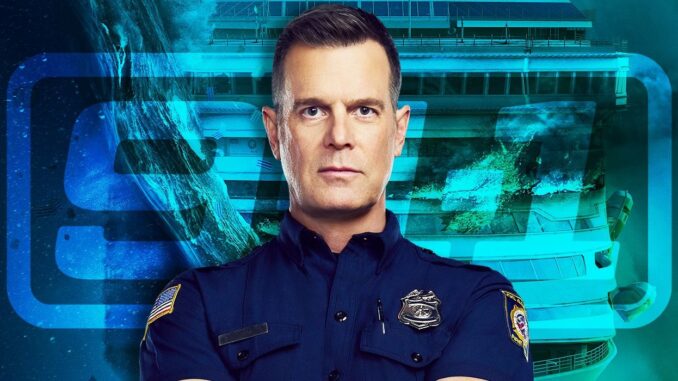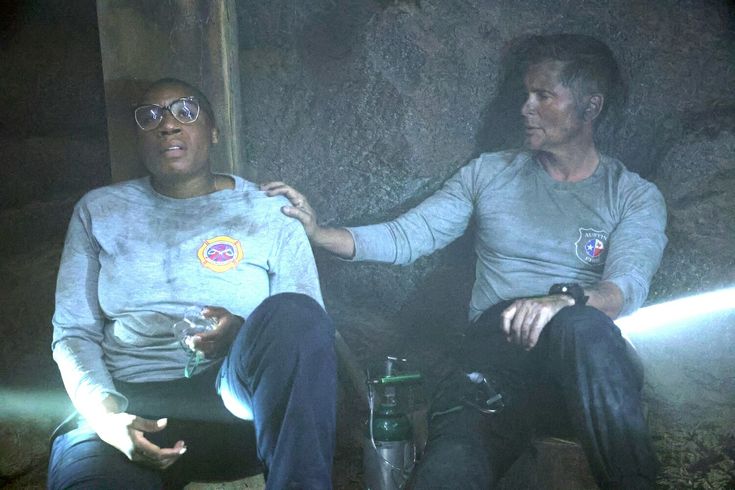
When a long-running TV show kills off a beloved character, the aftershock can last far longer than the writers ever expect. Fans get invested in these fictional lives, treating them almost like family. When the show 9-1-1 killed Bobby Nash, many loyal viewers felt betrayed. Bringing other characters in as regulars may look like a strategy to fill the void, but let’s be honest—nothing truly makes up for losing a cornerstone like Bobby.
In this article, we’ll dive into why killing Bobby was such a misstep, how the show tried to patch the wound, and why audiences simply aren’t buying it.
Why Bobby’s Death Hit Fans So Hard
Bobby wasn’t just another firefighter captain on 9-1-1—he was the heart and soul of the 118. His wisdom, compassion, and flawed humanity made him relatable. He wasn’t perfect, but that’s exactly what made him perfect for fans.
Think about it: every team needs an anchor. Without Bobby, the show felt like it lost its compass.
The Power of a Central Character
A central character is like the glue that holds a family photo album together. You can add new pictures, replace old ones, but without the spine, the whole thing falls apart. Bobby was that spine for 9-1-1.
Why Killing Bobby Was a Narrative Misstep
Sure, shocking deaths can grab attention. Writers often defend these moves as “bold storytelling.” But there’s a fine line between bold and reckless. Removing Bobby didn’t just shock—it dismantled a foundation that had taken years to build.
The Emotional Fallout for Viewers
Fans don’t just watch TV; they connect with it. Bobby’s storylines—his redemption arc, his leadership, his vulnerability—made people feel seen. Taking him away felt like ripping pages out of a favorite book.
Trying to Fill the Gap with New Regulars
After Bobby’s death, the show promoted or brought in other characters as regulars. While some are strong additions, it feels more like a patch on a cracked wall. No matter how fresh the paint, the crack still shows.
Why New Regulars Can’t Replace Bobby
New characters can bring variety, but they can’t replicate history. Bobby had years of development, layers of depth, and relationships that simply can’t be forged overnight. It’s like replacing a childhood friend with a stranger—it just doesn’t work the same.
The Fan Backlash That Won’t Fade
Scroll through fan forums or social media, and you’ll see a recurring theme: people are still angry. Bringing on new regulars feels like the writers saying, “Look, we fixed it!” But fans aren’t fooled.
Character Death vs. Character Growth
What’s more impactful—watching a beloved character grow and evolve, or cutting them off suddenly? Growth gives audiences hope. Death leaves them empty. Bobby’s ongoing journey would have offered much more than a shocking twist ever could.
The Ripple Effect on Other Characters
Bobby wasn’t just important on his own; he was central to everyone else’s storylines. His guidance shaped Buck, comforted Athena, and steadied the team. Without him, their arcs feel less authentic, like puzzle pieces missing their corner.
What The Writers Could Have Done Instead
Instead of killing Bobby, the writers had countless options:
-
Explore his ongoing redemption story.
-
Deepen his marriage with Athena.
-
Show him mentoring the next generation.
All these paths would have delivered drama without gutting the show’s foundation.
Shock Value Doesn’t Always Equal Good Storytelling
Killing a major character might grab headlines for a week, but long-term loyalty comes from consistent, meaningful storytelling. In Bobby’s case, shock value undermined years of investment.
The Difference Between Adding and Replacing
Bringing in new characters is fine—it keeps a show fresh. But when they’re used to replace instead of enhance, the audience feels the loss even more. Bobby’s absence makes new regulars feel like substitutes, not additions.
Lessons for TV Writers Everywhere
Bobby’s death is a textbook example of what happens when writers underestimate the audience’s emotional attachment. Viewers don’t just consume stories—they live them. Break that bond recklessly, and trust is hard to rebuild.
The Future of the Show Without Bobby
Can 9-1-1 survive long term without him? Possibly. But it will never feel the same. The heart has been removed, and while new characters might pump energy into the veins, the soul is gone.
Why Fans Still Hold Out Hope
Some fans secretly wish for a miraculous return—because TV has a way of undoing even the most permanent exits. Others simply rewatch Bobby’s old episodes, clinging to the version of the show they loved most.

Conclusion: A Mistake That Can’t Be Covered Up
At the end of the day, bringing other characters on as regulars doesn’t erase the mistake of killing Bobby. It may distract, it may even entertain, but it will never truly heal the wound left behind. Fans wanted growth, not grief. And while the show moves forward, the audience remains stuck on the moment everything changed.
FAQs
Q1: Why was Bobby so important to 9-1-1?
Bobby was the emotional anchor, leader, and moral compass of the team. His presence gave the show balance.
Q2: Can new regulars make up for Bobby’s loss?
No. While new characters add variety, they can’t replace years of emotional investment fans had in Bobby.
Q3: Why do fans react so strongly to character deaths?
Fans form emotional connections with characters. Killing a beloved one feels like losing a close friend.
Q4: Could Bobby’s death have been avoided in the story?
Yes. Writers had multiple paths for drama and growth without resorting to killing him off.
Q5: Will fans ever accept the show without Bobby?
Some might, but many will always see his death as the turning point where the show lost its heart.